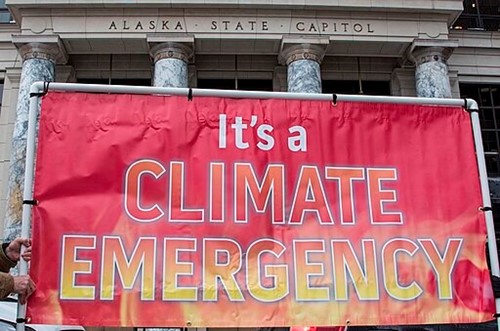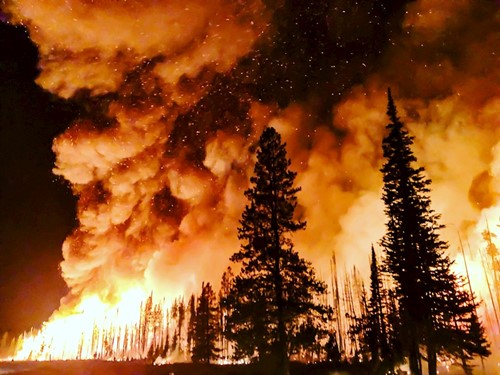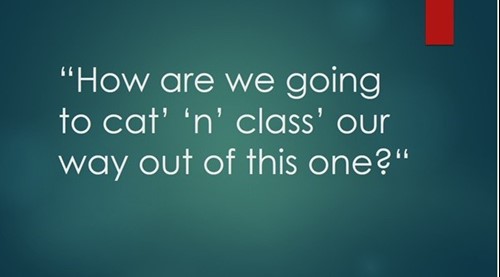At the demonstratively hot YOHHLNET study day on 28/6/23, I presented on sustainability in libraries, and the Sustainability in NHS KLS Community of Practice. In the discussion following my presentation, and on the “Wall of What’s Next” we populated with post-its sharing our thoughts and next steps, the danger of false narratives and greenwashing in particular featured. As if to underline this danger (and undermine everything I’d talked about!) unbeknownst to me ‘til the train home, that very morning the UK’s Climate Change Committee slammed the government’s lack of progress towards their already inadequate climate targets!

Some scientists have even highlighted the fallacy of “net zero”, a term that exists, they argue, to ensure “business as usual” persists, when it cannot. Even the NHS’ admirably ambitious targets of reaching net zero by 2040 are partly reliant on carbon offsets, an idea so self-evidently fallacious it calls into question the entire Greener NHS strategy. How can we effect positive change if the bedrock of sustainability efforts in the NHS, and beyond, is faulty?
More than this, many climate experts, including XR co-founder Rupert Read here, have warned that to even survive, we will need globally co-ordinated societal mobilisation greater than any war effort or the Marshall Plan by many factors. Back at the YOHHLNET study day (god bless you, Yorkshire) we independently reached a similar conclusion: that nothing short of the reorganisation of society, and the redistribution of power and wealth, is what is required to – and I don’t feel it is overly dramatic to write this – actually save the world.
Well, as you’ll have noticed, that hasn’t happened yet.

What has happened? The summer of record-breaking heat, (un)natural disaster upon (un)natural disaster to the point of fatigue to the layperson even; their holiday destinations (other people’s actual homes, mind) on fire, or flooded, or both. This week, another international collaboration sounded the alarm with quantified evidence that we’ve passed 6 of 9 “tipping points”, with a graphic reminiscent of Florence Nightingale’s famous rose-diagram and one that would similarly go down in history, if we weren’t desensitised now to the warnings of climate scientists.
“So what do we do?”, I facetiously asked at the study day. “How are we going to cat’ ‘n’ class’ our way out of this one?“

CILIP CEO, Nick Poole, opined at the time that only an educated electorate will vote-in people that can change things; and that libraries, and we as librarians, are well positioned to facilitate this, and well versed in it. Several of us present talked about doing what we can within our spheres of influence, and working together to grow those.
Embodying and developing these ideas, the leader of America’s (streets ahead) Sustainable Libraries Initiative, Rebekkah Smith Aldrich, declared in her webinar Sustainability 101 in August that we are all now “sustainability librarians”. Whether we like it or not, it’s too late: we will now need to factor climate change adaptation and mitigation into our every plan and professional move, and our personal ones too. As some of the most trusted professionals we can lead by example in how we live our lives and run our services and influence change in those aforementioned overlapping spheres. Smith Aldrich’s inspirational and informative series continues on 26/9/23 with Climate Action Planning (Part 2): Disaster Preparedness and Community Resilience and on 3/10/23 with Climate Justice (recordings will be available on creation of a free account).
We highlighted these webinars in our Sustainability in NHS KLS Community of Practice, which has grown since June: thank you if you have joined us, and please join us if you have not. Our links with CILIP’s Green Libraries Partnership have grown too. My co-chair Lucy Gilham and I sought to enshrine sustainability goals in the Quality and Improvement Outcomes Framework (QIOF), when we met with NHSE colleagues last month, as threatened/promised at the YOHHLNET study day, but we realised in our discussion that Knowledge for Healthcare will be redrafted before QIOF, and so that is where our sights are aimed now. This year’s Libraries Week (2-8/10/23) is green-themed, offering us a chance to demonstrate how we’re supporting our organisations to realise their green plans and meet their sustainability goals, and that’s a help... but all this is a long way from the pre-requisite reorganisation of society cited above. The month following Green Libraries Week, a much bigger fortnight-long event starts that should be a help too: COP28. Given that oil-rich gulf state and sportswashing Kingdom of False Narratives Dubai is hosting it this time, I’ll keep my hopes in check.
I’m not completely hopeless though, and that’s partly due to the fight that I see colleagues from the healthcare and library spheres putting up in the face of it all.
And I’ve heard northerners can be handy in a fight...
Adam Tocock, Library Services Manager
The Hillingdon Hospitals NHS Foundation Trust, and co-chair of the Sustainability in NHS KLS Community of Practice

